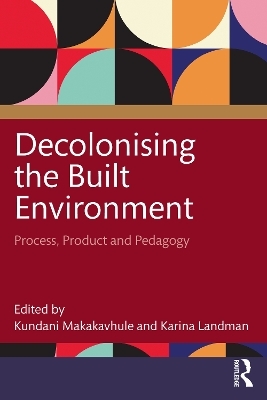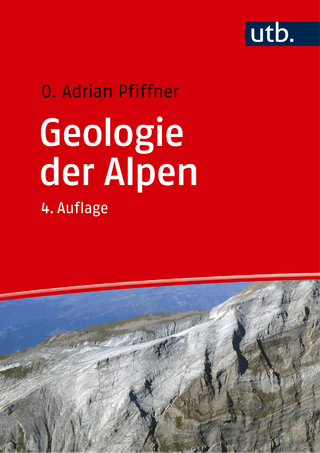
Decolonising the Built Environment
Routledge (Verlag)
978-1-032-35243-5 (ISBN)
- Noch nicht erschienen (ca. Februar 2025)
- Versandkostenfrei innerhalb Deutschlands
- Auch auf Rechnung
- Verfügbarkeit in der Filiale vor Ort prüfen
- Artikel merken
Decolonising the Built Environment: Process, Product, and Pedagogy provides an important and much-needed comprehensive overview of how decolonisation is shaping the built environment in theory, practice, and as a process/project today. Chapters provide an inclusive and trans-national conversation between a diverse set of academics, design practitioners and thinkers, and activists. This book is structured around three thematic and practical categories: Part 1 studies decolonisation conceptually; Part 2 studies decolonisation as a process; and Part 3 studies the products of decolonisation – as materialised in the form of buildings, urban design, planning, policy, and social practices.
Essential reading for students, teachers, and practitioners, this book presents the project of decolonisation as a pedagogy and an ongoing process.
Kundani Makakavhule is a Senior Lecturer in the Department of Town and Regional Planning at the University of Pretoria. Her current research is focused on the production, policy, and transformation of urban public open spaces as well as the transformation and regenerative potential of space on the neighbourhood and precinct scale. Karina Landman is a Professor in City Planning at the University of Pretoria, with a background in urban design and srchitecture. Her work focuses on spatial transformation, including research on gated communities and safer and sustainable neighbourhoods, regenerative and resilient cities, and public space.
1. Towards a Decolonial Turn in the Built Environment Part One: From Paradigm to Process 2. Performing Space: Thoughts on Colonising, Decolonising and the Concert Hall 3. Settler Colonial Critique and Indigenous Urbanization 4. Place-Based Indigenous Knowledge Systems and Their Relevance to the Decolonisation of Urban Planning Practice in Namibia: The Example of the Olupale and Omuvanda Cultural Open Spaces 5. Place-Based Strategies to Transform South African Urban Nearby Nature Places 6. An African Landscape Design Approach for Rural Development Part Two: From Process to Product & Pedagogy 7. Decolonising the Built Environment in and around a University Campus: The Incongruence between Intellectual Discourse and Lived (Institutional) Practices 8. Visual Redress at Stellenbosch University: Staff Reactions to the Decolonisation of Campus Spaces 9. The Invisible Users of the Street 10: Ubuntu Design Aesthetics and the Built Environment in South Africa 11. An Inquiry into Visual Art as Critical Disruptor to Reveal Emergent Narratives and Authorship in Architecture 12. Kamĩrĩĩthũ: An Architecture for Decolonisation Part Three: Reflections on the Decolonial Turn in the Built Environment 13. Spaces of Erasure 14. Can the Master Speak? 15. Conclusion: Reconsidering the Decolonisation of the Built Environment
| Erscheint lt. Verlag | 4.2.2025 |
|---|---|
| Zusatzinfo | 5 Line drawings, black and white; 30 Halftones, black and white; 35 Illustrations, black and white |
| Verlagsort | London |
| Sprache | englisch |
| Maße | 152 x 229 mm |
| Gewicht | 453 g |
| Themenwelt | Naturwissenschaften ► Geowissenschaften ► Geografie / Kartografie |
| Technik ► Architektur | |
| Technik ► Bauwesen | |
| ISBN-10 | 1-032-35243-4 / 1032352434 |
| ISBN-13 | 978-1-032-35243-5 / 9781032352435 |
| Zustand | Neuware |
| Informationen gemäß Produktsicherheitsverordnung (GPSR) | |
| Haben Sie eine Frage zum Produkt? |
aus dem Bereich


